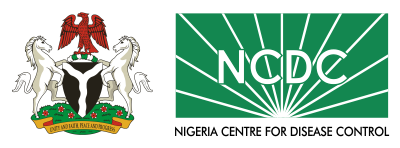The Nigeria Centre for Disease Control (NCDC) is aware of a suspected outbreak of Yellow fever in Ebonyi State and has had a Rapid Response Team supporting Ebonyi State’s response since the 30th of July 2019, in partnership with the World Health Organization (WHO).
Following a report of cases and deaths from fever of unknown origin in Izzi Local Government Area (LGA) in Ebonyi State, the State public health team commenced investigation. As at the 31st of July 2019, three cases had tested positive for Yellow fever at NCDC’s National Reference Laboratory, which triggered an immediate response.
The Ebonyi State Epidemiology Team is leading the response with support from the Nigeria Centre for Disease Control (NCDC), National Primary Health Care Development Agency (NPHCDA) and the World Health Organisation (WHO).
In the course of investigation, it was discovered that between May 1 and August 7, 2019, there had been cases that fit into the case definition for Yellow fever and 20 deaths in Izzi LGA, Ebonyi State, indicating that the outbreak may have been going on for a few months undetected by local health authorities. It was too late to collect samples for confirmation from these cases.
Immediately it was notified, NCDC deployed a rapid response team to support Ebonyi State with contact tracing, case finding, risk communications and the management of cases. Detailed analysis and plans are in advanced stages to apply to the international vaccine stockpile to enable a reactive vaccination campaign in Ebonyi state, in response to the cluster of cases.
Yellow fever virus is spread through bites of an infected mosquito. There is no human-to-human transmission of the virus. Yellow fever is a completely vaccine preventable disease and a single shot provides immunity for a lifetime. The Yellow fever vaccine is available for free in primary health care centres in Nigeria as part of the routine immunisation schedule. Every child is protected for life if vaccinated.
We encourage every family to ensure that children receive all their childhood vaccines. In addition to the vaccine, the public are advised to keep their environments clean and free of stagnant water to discourage the breeding of mosquitoes and use insecticide treated mosquito nets, screens on windows and doors to prevent mosquito bites.
It is important to avoid self-medication: visit a health facility immediately if you feel ill.
Since September 2017, Nigeria has recorded suspected cases of Yellow fever in all States in the country. As at the 31st of July 2019, 78 cases have been laboratory confirmed in Nigeria in 2019 alone.
A multi-agency Yellow fever technical working group coordinated by NCDC, has been leading the investigation and response to Yellow fever cases. The National Primary Health Care Agency is leading efforts to provide an additional opportunity of vaccination through preventive vaccination campaigns across the country.
Healthcare workers are reminded that the symptoms of Yellow fever include yellowness of the eyes, sudden fever, headache and body pain. If you have these symptoms or notice someone in your community displaying them, please contact your nearest health centre.
